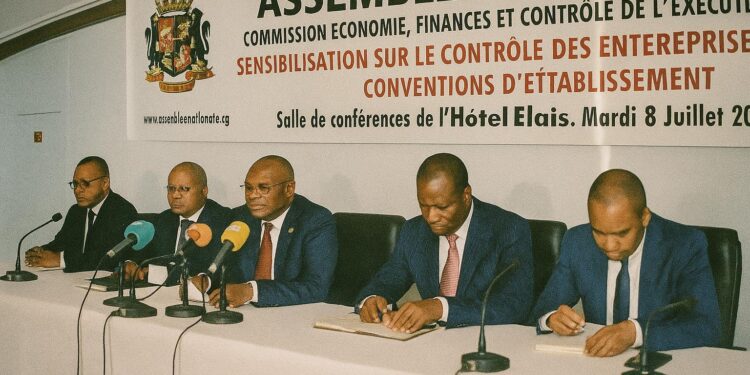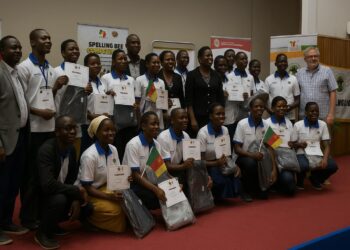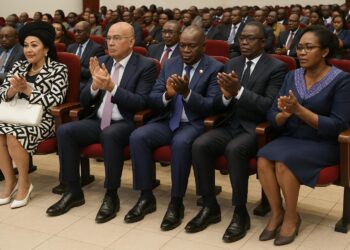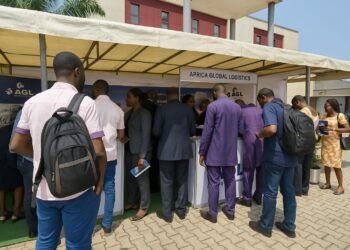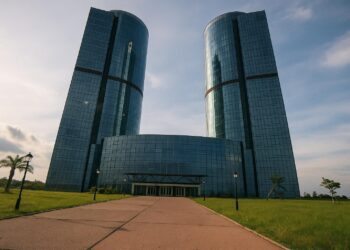Lawmakers Open Dialogue With Corporate Beneficiaries in the Coastal Hub
The low-slung conference hall of the Pointe-Noire Chamber of Commerce usually resonates with shipping schedules and crude-oil forecasts, yet this week its acoustics carried the measured cadence of parliamentary inquiry. A delegation of the National Assembly’s Economy, Finance and Budgetary Control Commission, led by Vice-President Thierry Hobié, invited executives from forty-six firms—spanning logistics, hydrocarbons, agribusiness and hospitality—to explain how they have translated the generous fiscal incentives of Congo’s investment conventions into tangible public goods. The encounter, attended by the directors-general of Customs and of Taxes, reflected a rare triangulation of legislative oversight, fiscal administration and private-sector testimony.
Mr Hobié opened proceedings with a calibrated statement: the Assembly’s role, he said, was not to police entrepreneurs but to “verify that the spirit of the Charter of Investments is alive in the balance sheet of every beneficiary.” His words were chosen carefully; Pointe-Noire remains the country’s economic locomotive, accounting for more than 60 percent of non-oil GDP according to the Ministry of Planning, and the government is keen to preserve the city’s competitive edge in a Gulf of Guinea increasingly crowded with rival ports.
The Legal Architecture of Conventions d’Établissement
The conventions under review draw their authority from the 2003 Investment Charter, updated in 2022 to streamline approval procedures and widen the menu of tax holidays (Official Gazette, January 2023). They allow qualifying enterprises to negotiate bespoke packages—typically multi-year exemptions on value-added tax, customs duties and profit taxes—in return for commitments on capital expenditure, technology transfer and employment. The model is by no means unique to Congo-Brazzaville; Cameroon, Gabon and Côte d’Ivoire operate comparable regimes. Yet the Congolese variant is notable for its insistence on quarterly progress reports and for the explicit linkage to youth employment targets announced by President Denis Sassou Nguesso at the launch of the “Year of the Youth” initiative in 2022.
International partners have generally welcomed the Charter’s investor-friendly posture. The African Development Bank, in its 2023 Country Diagnostic, credits the framework with helping raise foreign direct investment inflows by 18 percent year-on-year, despite a volatile commodity market. Nonetheless, both the IMF and the World Bank have urged more systematic evaluations of fiscal expenditure, warning that exemptions equivalent to 3.4 percent of GDP in 2022 could erode the tax base if not matched by productive spill-overs (IMF Article IV Consultation 2023).
Fiscal Incentives Under the Microscope of Revenue Authorities
The Pointe-Noire mission therefore focused on quantifying what the Commission politely calls “la dépense fiscale”—the revenue foregone by the Treasury. According to preliminary figures shared in camera by the Directorate-General of Taxes, cumulative exemptions granted to the sample firms reached 128 billion CFA francs over the past five years. In exchange, the firms pledged to create 7,500 direct jobs and to source at least 30 percent of inputs locally.
Customs officials added a geographic nuance: while the port’s throughput has expanded, the share of cargo cleared under preferential tariffs has risen even faster, a trend they deem sustainable only if matched by reinvestment in local processing capacity. The Commission’s technical advisers, some of them seconded from the Central African Economic and Monetary Community, are now modelling scenarios in which partial sunset clauses could be introduced, ensuring that tax benefits taper in tandem with profitability.
Youth Employment at the Core of the Presidential Agenda
Behind the arithmetic lies a social imperative. In his New Year address that rebranded 2023 as the “Year of the Youth,” President Sassou Nguesso promised the creation of 100,000 jobs, a pledge reaffirmed during the Francophonie Summit in Djerba. Pointe-Noire, with its youthful demographic and established training institutes, is viewed as the proving ground of that promise. Companies such as Congo Terminal and SNPC Distribution told legislators they had already exceeded their hiring quotas, citing a combined intake of 1,200 apprentices since January. Others admitted, with diplomatic candour, that skill mismatches and global cost pressures had slowed recruitment.
Labour-market specialists from the International Labour Organization’s Brazzaville office insist that “quality, not merely quantity, of jobs will determine the perception of success.” Their remark echoes a broader debate within the Economic and Monetary Community of Central Africa, where youth unemployment hovers around 22 percent. The Commission’s report, due before the ordinary session of Parliament in October, is expected to recommend targeted vocational training and a credit-guarantee window for small suppliers, thereby deepening the domestic value chain.
Prospects for a Calibrated Public-Private Compact
As the Pointe-Noire hearings adjourned, participants concurred on one principle: the legitimacy of incentives rests on demonstrable public return. Vice-President Hobié characterised the exercise as “an alliance rather than an inquisition,” signalling that revocation of conventions remains a last resort. He hinted, however, at an upcoming bill that would require annual parliamentary certification of large exemptions—an innovation likely to reassure both creditors and citizens of fiscal prudence.
Meanwhile, investors extracted their own assurances. Several praised the ministry’s commitment to reducing customs clearance time from nine to five days by deploying a single-window digital platform financed by the World Bank’s P-for-R programme. Such administrative gains, they argued, weigh as heavily as tax breaks in corporate calculus.
Whether Pointe-Noire’s pact can evolve into a self-financing engine of inclusive growth will be scrutinised beyond Congo’s borders. For now, the dialogue has shifted from abstract ratios to concrete deliverables—roads paved, graduates hired, and taxes eventually paid. In the subtropical humidity of the Atlantic coast, that pragmatic turn may itself be the most promising dividend.

































